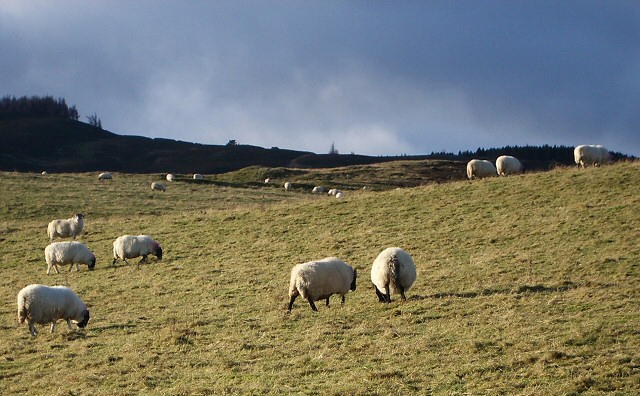
Recent reports have confirmed farmers' worries over a return of the Schmallenberg virus in sheep and cattle with figures indicating up to 60% loss being suffered by early lambing flocks.
The disease, which leads to lambs and calves being stillborn or deformed, has led to farmers complaining over a lack of information about the virus which is currently confirmed on 147 farms around the UK.
The Department for Environment, Food and Rural Affairs (Defra) warned the animal health sector over a possible return of Schmallenberg last December.
Reports from Europe led the National Sheep Association (NSA) to look for ways in which the UK could better equip itself to deal with the midge-borne virus in 2013.
"With this number of losses, the disease is probably having a bigger impact than bluetongue. DEFRA are still calling the disease low impact and that may, or may not, be the case. But for the individuals it is not low impact at all" said Phil Stocker, NSA Chief Executive.
"Anecdotal reports from France and other areas of Europe suggest Schmallenberg may be causing more problems in its second year than expected, possibly because livestock does not develop the level of immunity anticipated."
The Animal Health and Veterinary Laboratories Agency would be forced to collect the data if Schmallenberg was a notifiable disease, but NSA believes this would not be in the interest of the industry, due to the implications it would have on trade between UK and other countries, both in the EU and further afield.
"It would be great if the Government could collect this data, so we better understood the situation and how to implement control strategies, including vaccination programmes once a vaccine is available".
"However, given the reality of the situation, NSA feels very strongly that industry should pull together and ensure a solution is found."
Defra said it was "closely tracking the disease and will continue to work with partners across Europe and the UK to develop our knowledge of the disease".
Liver fluke is also causing havoc in many parts of the UK, recent reports show.
Peter Baber, Chairman of SCOPS (Sustainable Control Of Parasites in Sheep), says the recent heavy rains across the UK have maintained the high risk of liver fluke in sheep and cattle and he stressed the need for farmers to urgently contact their vet or prescriber to discuss your fluke control programme.
Recent reports from the AHVLA show a tenfold increase in the number of cases of acute fasciolosis in the last quarter of 2012 compared with 2011 and a fourfold increase in the number of cases of chronic disease.
These data are supported by reports from veterinary practitioners, who are also diagnosing fasciolosis at post mortem examinations of sheep for their farming clients in a large number of cases.
The SCOPS group put out a fluke alert at the end of summer warning that, due to the wet summer, the fluke risk would be high. Farmers were urged to discuss the situation on their farms with their prescriber.
The fluke challenge has, as anticipated, been very high this year and the traditional treatment times are no longer applicable.
There have been other forecasts warning of a rise in liver fluke. January's Parasite Forecast from the National Animal Disease Information Service (NADIS) showed a significant risk factor across most of the rest of the UK.
